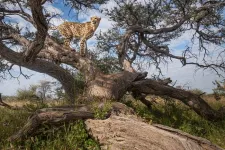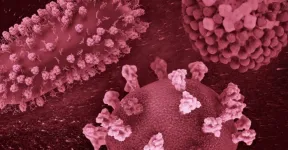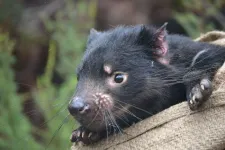(Press-News.org) In autumn 2022 and winter 2023, a total of 20 cheetahs from Namibia and South Africa were introduced to Kuno National Park in India to establish a free-ranging population – for the first time since their extinction in India 70 years ago. Although the idea may be commendable, getting it right is not so easy. Scientists of the Cheetah Research Project of Leibniz-IZW in Namibia see shortcomings in the reintroduction plan: In southern Africa, cheetahs live in a stable socio-spatial system with widely spread territories and densities of less than one individual per 100 km². The plan for cheetahs in Kuno National Park assumes that the high prey density will sustain high cheetah densities, even though there is no evidence that high cheetah density depends on high prey density. As Kuno National Park is small, it is likely that the released animals will move far beyond the park's boundaries and cause conflicts with neighbouring villages, the team said in a letter in the scientific journal “Conservation Science and Practice”.
The Asiatic cheetah (Acinonyx jubatus venaticus), a subspecies of the globally endangered cheetah, lived on the Indian subcontinent until it was driven extinct by people 70 years ago. In September 2022 and February 2023, a total of 20 cheetahs from Namibia and South Africa of the subspecies Acinonyx jubatus jubatus were introduced into Kuno National Park in the Indian state of Madhya Pradesh to act as the first nucleus of a new population of the cats in India. Kuno National Park is an unfenced wilderness area of approximately 17 by 44 kilometres (about 750 km²). Based on a calculation of the local prey density, it was calculated that 21 adult cheetahs could be sustained by the prey base in Kuno National Park – equivalent to a density of about three individuals per 100 km².
Based on their own research results from a long-term study of the spatial behaviour of cheetahs in Namibia, as well as comparable work in East Africa, scientists from the Leibniz Institute for Zoo and Wildlife Research (Leibniz-IZW) warn against overestimating the carrying capacity of the area. The carrying capacity is usually between 0.2 and 1 adult per 100 km² for cheetahs under natural conditions. This is true not only for Namibia, but also for the ecologically very different conditions in the Serengeti ecosystem in East Africa which has a much higher density of prey. Against this background, the team formulated predictions about the spatial behaviour of cheetahs in their new habitat, identifying controversial issues and hidden core assumptions of the reintroduction plan. These assumptions ignore important aspects of the cheetah socio-spatial system:
Male cheetahs follow two different spatial tactics. Territory holders occupy territories consisting of a collection of important communication hotspots. Males without territories (“floaters”) move and live between existing territories, as do females, with occasional forays into territories to access important information at marking sites. “The territories do not border each other, their centres are always about 20 to 23 kilometres apart,” says Dr Jörg Melzheimer from the Cheetah Research Project. “The space between the territories is not defended by any male, it is the living and transit space for floaters and females.” This deeply rooted behaviour will also lead to a system in India with territories about 20 to 23 kilometres apart. “This distance is independent of the actual size of the territories or the prey base,” adds Dr Bettina Wachter from the Cheetah Research Project. “In Namibia, territories are larger and prey density lower, in East Africa territories are smaller and prey density higher – but the distance between territories is a constant and no new territories are established in between. For the reintroduction plan in Kuno National Park, these distances were ignored.”
Already with the cheetahs transferred from Namibia in autumn 2022, including three males, the carrying capacity of Kuno National Park has been reached in terms of the cheetahs' territorial system, Wachter, Melzheimer and their team conclude. “Regardless of the size of their territories established in India, the three Namibian males will have occupied the entire national park, leaving no room for further territories of the additional cheetahs recently transferred from South Africa,” they conclude. Although the process by which a socio-spatial system is established after a reintroduction has not yet been scientifically explored, there are initial findings that reintroduced cheetahs undertake long forays over an area of several thousand square kilometres in the first few months after translocation. “We therefore predict that cheetahs will most likely be also found far outside the national park and could come into conflict with farmers in the vicinity of the park,” the scientists write in their letter. The process of establishing their spatial system will probably take many months and will lead to the formation of territories outside the park, which is why the floaters and females will often be found outside the park as well.
In light of the present research findings, the team recommends that all future reintroductions of cheetahs in India take into account the spatial organisation of the species. This would permit to pro-actively address conflicts and provide valuable insights into the process of establishing cheetah territorial systems after reintroductions.
END
Cheetahs need more space: Reintroduction in India must consider their spatial ecology
2023-04-20
ELSE PRESS RELEASES FROM THIS DATE:
From pathogens to fads: Interacting contagions
2023-04-20
APRIL 20, 2023
Most people think of a disease outbreak when they hear the word “contagion.” But it’s a concept that extends beyond pathogens. It could be an infectious disease, a fad, an online meme, or even a positive behavior in a population.
“From the mathematical perspective, a contagion is just a thing that spreads,” says Laurent Hébert-Dufresne, a former SFI Postdoctoral Fellow, now an associate professor in computer science at the University of Vermont.
April 19–21, Hébert-Dufresne and Juniper Lovato, ...
Beaver ponds with deeper sediments store more nitrogen, simple mapping reveals
2023-04-20
American Geophysical Union
20 April 2023
AGU Release No. 23-18
For Immediate Release
This press release and accompanying multimedia are available online at:
https://news.agu.org/press-release/beaver-ponds-with-more-sediments-store-more-nitrogen-simple-mapping-reveals/
Beaver ponds with deeper sediments store more nitrogen, simple mapping reveals
Simple mapping of beaver ponds can help land managers and conservationists in the West detect which ponds are sponging up nitrogen and which are releasing it
AGU press contact:
Rebecca Dzombak, +1 (202) 777-7492, news@agu.org (UTC-4 hours)
Contact information for the researchers:
Desneiges ...
New drug may help prevent migraine for difficult cases
2023-04-20
EMBARGOED FOR RELEASE UNTIL 4 P.M. ET, THURSDAY, APRIL 20, 2023
MINNEAPOLIS – The drug atogepant may help prevent migraines for people who have had no success with other preventive drugs, according to a preliminary study released April 20, 2023, which will be presented at the American Academy of Neurology’s 75th Annual Meeting being held in person in Boston and live online from April 22-27, 2023. The study involved people with episodic migraine, which is defined as having up to 14 headache days per month with migraine ...
ChatGPT is still no match for humans when it comes to accounting
2023-04-20
Last month, OpenAI launched its newest AI chatbot product, GPT-4. According to the folks at OpenAI, the bot, which uses machine learning to generate natural language text, passed the bar exam with a score in the 90th percentile, passed 13 of 15 AP exams and got a nearly perfect score on the GRE Verbal test.
Inquiring minds at BYU and 186 other universities wanted to know how OpenAI’s tech would fare on accounting exams. So, they put the original version, ChatGPT, to the test. The researchers ...
Researchers reveal a map to study novel form of cell-to-cell communication
2023-04-20
An international team led by researchers at Baylor College of Medicine with the National Institutes of Health Extracellular RNA Communication Consortium and the Bogdan Mateescu laboratory at the ETH Zürich and University of Zürich has developed a new powerful resource to study extracellular RNA (exRNA), a novel form of cell-to-cell communication. The study, published in the journal Cell Genomics, lays the foundation to examine how exRNA and its carrier proteins found in bodily fluids function in a healthy as well as a diseased setting, potentially providing a means to accurately implement early ...
ORNL’s Lupini elected fellow of the Microscopy Society of America
2023-04-20
Andrew Lupini, a scientist and inventor at the Department of Energy’s Oak Ridge National Laboratory, has been elected Fellow of the Microscopy Society of America.
MSA fellows are senior distinguished members who have made significant contributions to the advancement of microscopy and microanalysis through scientific achievement and service to the scientific community and the society. Lupini was one of only four scientists named an MSA Fellow this year.
Lupini was cited “for foundational contribution of theory and practice ...
Purdue Ventures invests in antibody-based cancer therapeutics company
2023-04-20
WEST LAFAYETTE, Ind. – Purdue Ventures, which manages three funds to support Purdue University-connected startups, has invested $250,000 in TRIO Pharmaceuticals Inc., a cancer immunotherapeutics startup founded by a Purdue University biophysics and structural biology alumnus. The company’s antibody-based therapeutics strengthens the body’s defense, the immune system, to eradicate cancer.
Purdue Ventures’ investment is part of a larger $2.2 million series seed-funding ...
Jefferson Lab stays gold by staying green
2023-04-20
NEWPORT NEWS, VA – Finding ways to purchase sustainable products for the work of science has yielded another golden award. The U.S. Department of Energy's Thomas Jefferson National Accelerator Facility has been recognized with a gold-level GreenBuy Award for its purchase of environmentally friendly products in fiscal year 2022.
The GreenBuy Award Program honors DOE sites that go beyond the minimum requirements for purchasing products that are energy efficient, water efficient and recycled. Participating sites can qualify for three levels of the award: gold, silver and bronze.
“The award is to show our mindset is ...
Evolution of two contagious cancers affecting Tasmanian devils underlines unpredictability of disease threat
2023-04-20
PRESS RELEASE FROM THE UNIVERSITY OF CAMBRIDGE
EMBARGOED UNTIL 19:00 BST LONDON TIME/14:00 US EASTERN TIME THURSDAY, 20 APRIL 2023
Paper and photos available at: https://drive.google.com/drive/folders/1YaEEaTCCMRt85NXmCSpeO15YOrIRaXpO?usp=share_link
Transmissible cancers, which occur only rarely in the animal kingdom, are spread by the transfer of living cancer cells. In the case of Tasmanian devils, the cells are transferred through biting – a behaviour that is common in devils especially in fights over mates and food.
Tasmanian devils are susceptible to two fatal transmissible cancers called devil facial ...
A gene involved in Down syndrome puts the brakes on neurons' activity in mice, new study shows
2023-04-20
Researchers from the University of Michigan have found that an extra copy of a gene in Down syndrome patients causes improper development of neurons in mice.
The gene in question, called Down syndrome cell adhesion molecule, or DSCAM, is also implicated in other human neurological conditions, including autism spectrum disorders, bipolar disorder and intractable epilepsy.
The cause of Down syndrome is known to be an extra copy of chromosome 21, or trisomy 21. But because this ...





